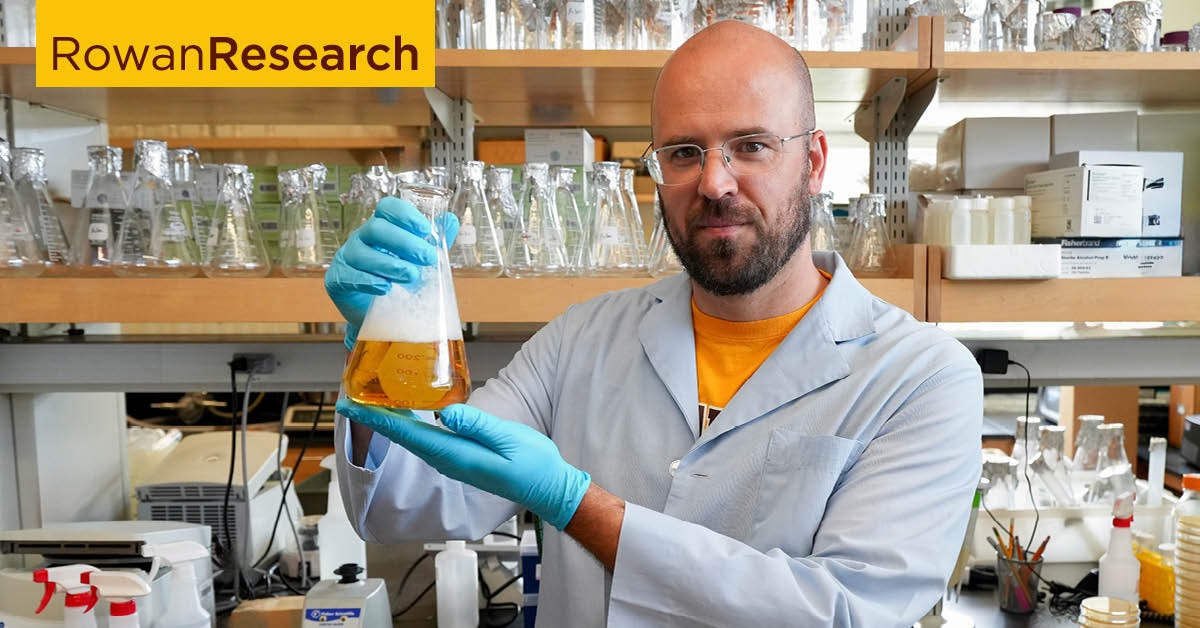Hunting for new yeasts—and beer
Hunting for new yeasts—and beer

Matthew Farber, Ph.D.
Microbiologist
Areas of expertise:
Applied microbiology, brewing science
More informationWhat is beer, really? Invented thousands of years ago, beer is a fermented beverage, brewed with four basic ingredients: water, grain malt (most commonly barley), hops and yeast. Ultimately, beer is the result of a complex biochemical process in which scientific variables can affect the outcome.
Matthew Farber, an associate professor of biological and biomedical science in the College of Science & Mathematics, is an applied microbiologist, beer hobbyist and entrepreneur in the field of zymology or zymurgy, the study of the biochemical processes of fermentation.
At Rowan, Farber teaches biology through the art of what he calls “yeast hunting.”
Yeasts are single cellular fungi with a lot of commercial value due to their ability to ferment sugar. Most beer is brewed using either ale yeast (Saccharomyces cerevisiae) or lager yeast (Saccharomyces pastorianus). Ale yeasts exist in nature but are “domesticated” or made more stable for beer production. Lager yeasts are an industrial hybrid, created as a result of industry practices, explained Farber.
Things get interesting when you consider that ale and lager yeast represent only two species of what's an estimated 200,000 species of yeast in the world, with only about 4% known to science.
So, while undergraduate biology students in Farber’s lab learn the basics of the scientific process, they also participate in a self-guided treasure hunt on campus in search of the next great fermenter.
The lab partners with fellow biologist Sara Wright, Ph.D., and the Rowan University Arboretum to sample native oak trees on campus to characterize the yeasts that are present.
“Students discover novelty; they discover, isolate and identify a yeast that has never been described before by science,” Farber said. “One of the reasons why I started this project is to engage undergraduates in laboratory research. We learn basic laboratory techniques. We learn the basics of microbiology while thinking about practical applications in food production.”
His isolation of a non-traditional yeast that makes a sour beer was found several years ago on a Philadelphia dogwood tree. Patented and named Philly Sour™, the brewing product is commercially available worldwide through Lallemand Brewing.
Rowan University researchers are passionate about what they do. Find more at Meet Our Researchers.